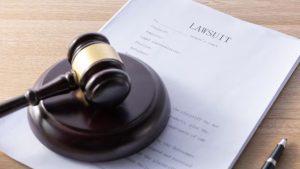

In the hallowed halls of academia, where intellectual pursuits and professional advancement often intertwine, a storm has been brewing at the University of Southern California (USC). At the center of this tempest is Dr. C.W. Park, a distinguished professor whose lawsuit against the institution has sent shockwaves through the academic community. This legal battle not only highlights the complexities of university politics but also raises critical questions about fairness, discrimination, and the very nature of success in higher education.
The Man Behind the Lawsuit
Before we delve into the intricacies of the case, it’s crucial to understand who C.W. Park is and why his allegations carry such weight. Dr. Park is no ordinary professor; he’s a titan in the field of marketing, with a career spanning decades and a reputation that precedes him in both academic and corporate circles. His research has been cited thousands of times, and his insights have shaped the strategies of Fortune 500 companies.
But even giants can feel the sting of injustice, and it’s this perceived slight that has led Dr. Park to take on an institution as formidable as USC.
The Lawsuit: Unraveling the Claims
At its core, the lawsuit filed by C.W. Park against USC alleges a pattern of discrimination and unfair treatment. While the full details are still emerging, several key points have come to light:
- Pay Disparity: Park claims that despite his stellar record and contributions to the university, his compensation has consistently lagged behind that of his peers, particularly those of different ethnic backgrounds.
- Promotion Denial: The lawsuit suggests that Park was passed over for leadership positions within the university, positions he believes he was eminently qualified for.
- Hostile Work Environment: Perhaps most disturbingly, Park alleges that he faced a hostile work environment, with colleagues and administrators creating obstacles to his success and undermining his authority.
- Retaliation: Following his complaints about these issues, Park claims he faced retaliation, including reduced resources for his research and teaching.
These allegations, if proven true, paint a troubling picture of life behind the scenes at one of America’s most prestigious universities.
The Broader Context: Academia Under the Microscope
The C.W. Park lawsuit doesn’t exist in a vacuum. It’s part of a larger conversation about equity, diversity, and inclusion in higher education. Universities across the nation are grappling with similar issues, from allegations of bias in hiring and promotion to concerns about the treatment of minority faculty members.
What sets the Park case apart is the prominence of the plaintiff and the boldness of his claims. By taking on USC, Park has thrust these issues into the spotlight, forcing a reckoning that may reverberate far beyond the confines of one campus.
USC’s Response: A Delicate Balancing Act

As news of the lawsuit broke, all eyes turned to USC for its response. The university, known for its prowess in public relations, found itself in a challenging position. On one hand, it needed to defend its reputation and practices. On the other, it had to acknowledge the seriousness of the allegations and demonstrate a commitment to fairness and equality.
In a carefully worded statement, USC expressed its commitment to creating an inclusive environment for all faculty members. The university also highlighted its ongoing efforts to address issues of equity and diversity. However, specific rebuttals to Park’s claims were noticeably absent, likely due to the ongoing legal proceedings.
The Academic Community Reacts
The reaction from the academic community has been mixed, reflecting the complexity of the issues at hand. Many of Park’s colleagues have rallied to his support, sharing their own experiences of discrimination and expressing hope that his lawsuit will bring about much-needed change.
Others, however, have urged caution, reminding everyone of the need for due process and warning against rushing to judgment. Some have even questioned Park’s motivations, wondering if personal grievances might be clouding the larger issues at stake.
Potential Implications: A Watershed Moment?
Regardless of its outcome, the C.W. Park lawsuit against USC has the potential to be a watershed moment in academia. Here are some possible implications:
- Increased Scrutiny: Other universities may face closer examination of their own practices, potentially leading to a wave of similar lawsuits.
- Policy Changes: Institutions might proactively revise their policies on hiring, promotion, and compensation to avoid similar controversies.
- Diversity Initiatives: There could be a renewed push for more robust diversity and inclusion programs in higher education.
- Transparency: Universities might be compelled to be more transparent about their decision-making processes, particularly when it comes to faculty advancement.
The Human Element: Beyond the Headlines
While the legal battle unfolds in courtrooms and the court of public opinion, it’s essential to remember the human element at the heart of this story. C.W. Park, despite his accolades and achievements, is an individual who feels wronged and is seeking justice. His courage in coming forward, regardless of how one views his claims, has already sparked important conversations.
On the other side, the administrators and colleagues named in the lawsuit are also individuals, with their own perspectives and experiences. The truth, as is often the case, likely lies somewhere in the complex web of human interactions, institutional policies, and societal pressures that shape academic life.
Looking Ahead: What’s Next for C.W. Park and USC?
As the lawsuit progresses, both Park and USC face uncertain futures. For Park, the road ahead is fraught with challenges. Taking on a powerful institution like USC is no small feat, and the toll—both personal and professional—could be significant. Yet, if successful, he could emerge as a transformative figure in the fight for equity in academia.
USC, for its part, must navigate treacherous waters. How it handles this lawsuit could define its reputation for years to come. Will it fight tooth and nail to defend its practices, or will it seize this as an opportunity for meaningful introspection and change?
Conclusion: A Case Study in Academic Politics and Human Rights
The C.W. Park lawsuit against USC is more than just another legal battle. It’s a case study in the complex interplay of academic politics, human rights, and institutional power. As the case unfolds, it will undoubtedly provide valuable insights into the challenges facing higher education in the 21st century.
For now, all we can do is watch, wait, and hope that, whatever the outcome, it leads to a fairer, more equitable academic landscape for all. The hallowed halls of our universities should be places of opportunity and growth for everyone, regardless of their background. Perhaps, in the end, that will be C.W. Park’s most lasting legacy.
You Can Also Read Here The Law of Detachment: A Logical Tool for Valid Reasoning


